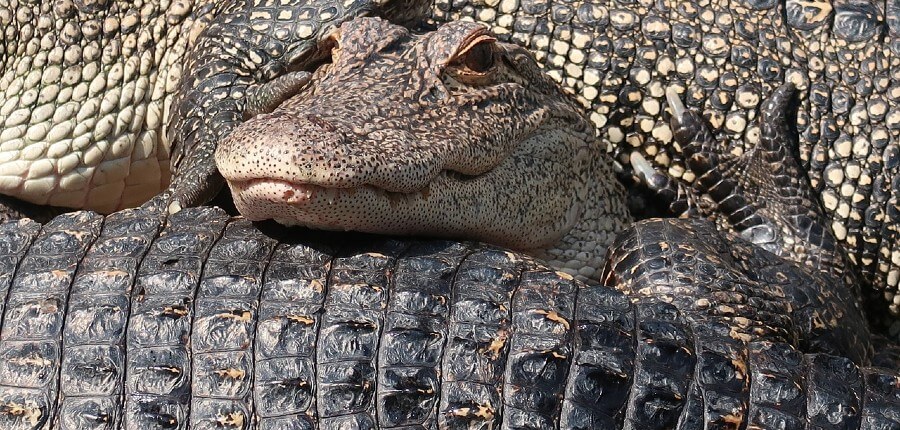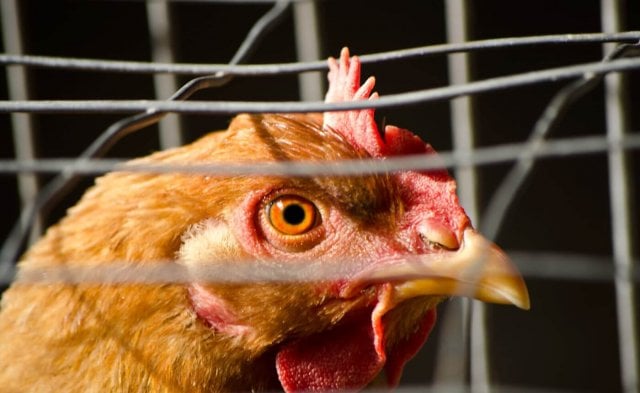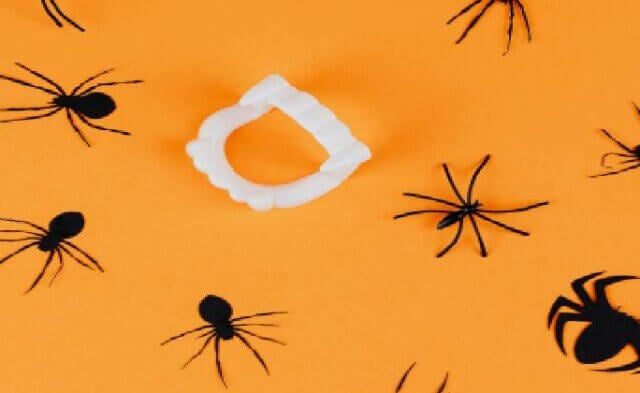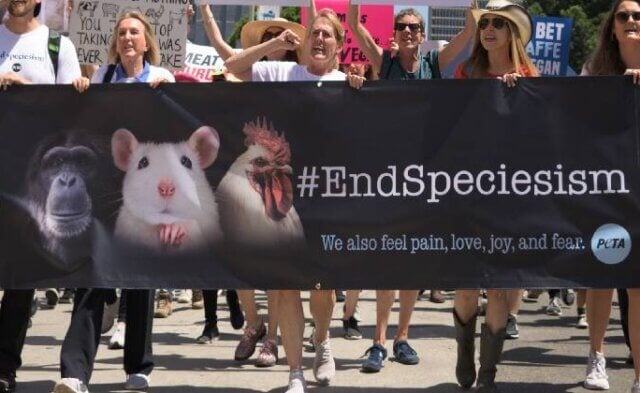PETA members are helping PETA make progress for all animals, including alligators and crocodiles who are raised in horrid conditions and killed by the tens of thousands every year so that their skins can be made into handbags, belts, shoes, wallets, and watchbands.
PETA recently released the findings from a scathing new investigation of the alligator- and crocodile-skin industry. To watch our shocking video exposé, please visit PETA.org/HermesCruelty.
Investigators documented appalling conditions at facilities in Texas and Zimbabwe where these complex animals are raised and killed for handbags, belts, and watchbands, including those sold by “luxury” brand Hermès—whose famous Birkin and Kelly handbags require the deaths of two or three crocodiles per bag.
Like us, alligators and crocodiles thrive in fresh air and sunshine. In the wild, the water that they inhabit is naturally refreshed by rain and rivers. Imagine, then, how miserable it must be to have nothing but foul air to breathe while living in a pit of fetid, excrement-filled water inside a dark, windowless shed.
Sadly, at Lone Star Alligator Farms in Winnie, Texas—where a PETA investigator worked for one month—those are the conditions that alligators are forced to live in 24 hours a day until they’re killed.
Each 10-foot-by-16-foot (or smaller) pit is crammed with about 125 alligators. At slaughter, some of them are shot with a captive-bolt gun. PETA’s investigator saw animals who were crudely cut open while they were still conscious and able to feel pain. Some alligators continued to move several minutes after their spines were hacked open with box cutters.
At two crocodile farms that PETA’s investigators toured in Zimbabwe, the animals are confined to crowded, barren concrete pits from birth to slaughter, at around age 3. (A crocodile’s natural life span can exceed 70 years.)
The operations director of these facilities told a PETA investigator that crocodiles are taken to the slaughterhouse on site, where they’re electrically stunned, their necks are cut, a wire is shoved down their spines, and a metal rod is jammed into their skulls to scramble their brains.
The Zimbabwe facilities are owned by Padenga Holdings Limited, which is also a partial owner of Lone Star. Padenga is one of the largest suppliers of alligator and crocodile skins to high-end “luxury” brands. In 2014 alone, more than 43,000 animals were killed at Padenga’s farms in Zimbabwe.
Each of those animals was a wondrous individual. Alligators and crocodiles like to surf. They like to play with balls and other toys. They give each other piggyback rides for fun. They like to slide down slopes repeatedly. Some have been observed playing peacefully with river otters. One even had a close 20-year friendship with a man who rescued him after he had been shot. They’re so clever that some even use tools to lure prey and some respond when called by name.
PETA posted the video about its investigation on Facebook, and when the news broke, social media exploded with outrage. Word spread fast—with millions of views, shares, and reposts across Facebook, Twitter, Instagram, and Snapchat. Even celebrities joined in the social-media uproar.
The video has been viewed more than 19 million times on the sites of PETA or its international affiliates!
PETA organized hard-hitting demonstrations outside Hermès stores. Media couldn’t resist the image of a PETA supporter painted to look like a bloodied crocodile while others held signs reading, “Hermès: Accessories to Murder” and “3 Animals Killed for One Crocodile Bag.”
PETA has purchased stock in Hermès in order to present shareholder resolutions asking for improved conditions at its supplier facilities and more humane handling and slaughter methods.
Hermès also needs to hear from the public in order to be persuaded to change its policies. Therefore, we would greatly appreciate it if you would please contact Hermès CEO Axel Dumas at [email protected] and ask that the company stop selling products made from alligator and crocodile skins.
Please also let your friends and family know that it’s easy to be fashionable without wearing anyone else’s skin. Go to PETA.org/WearVegan for tips on where to find great-looking animal-friendly shoes, belts, purses, and wallets. And thank you for using your wallet to help PETA end animal abuse.





